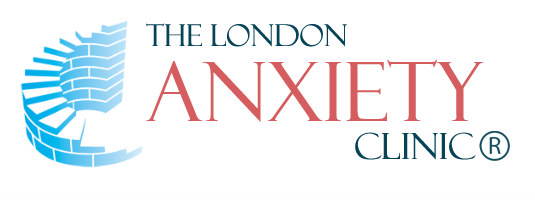What is anxiety?
Many people seek help for anxiety and anxiety is a normal response, it allows us to be able to deal with real situations appropriately and is something that everyone experiences at different times and with varying intensity. So anxiety is helpful when you can react to situations effectively and the anxiety symptoms are only temporary and occasional. Anxiety becomes unhelpful when everyday or specific situations that are not a danger are evaluated consciously or subconsciously as a threat. This can lead to feelings of worry, nervousness and unease and you may know or may not know the reasons for feeling this way, this is called Generalised Anxiety Disorder (GAD).
In addition there are many conditions where anxiety is the main symptom, sometimes focussed around a specific event and anxiety has been classed into a number of categories. For example, fears/phobias, post traumatic stress disorder (ptsd),obsessive compulsive disorder (OCD) body dysmorphic disorder and panic disorder.
From historical knowledge, continual research and diagnosis, anxiety has been developed into various categories and anxiety disorders. Below are a number of these variations, hovering over the title or clicking on them will provide further information for you. In addition to the right there is a running list of the main types of anxiety symptoms that can be experienced and at varying degrees.
Main Types of anxiety
Generalised anxiety disorder (GAD)
Help for general anxiety, London anxiety clinic
Generalised anxiety disorder (GAD) can be described as persistent feelings of worry, or anxiousness and not knowing why or the specific reasons for having these particular feelings.
GAD can feel like a constant state of dread and with little respite from the anxious state relaxation can feel almost impossible. Some clients describe this as a nagging feeling that something is just not right. This is combined with excessive worry, not necessarily about anything specific. The anxiety itself can feel free floating. The ability to relax appears challenging and stress can occur quickly, with no significant tolerance to deal with it.
This constant anxious state can be experienced for months and even years, and can be disruptive to relationships and employment, as the symptoms can be distracting from normal daily activities and enjoyment in life.
However, with the appropriate treatment, you do not need to suffer this general feeling of anxiety. Telling ourselves , or even some one else telling us to relax is not enough to calm the system.
Generalised anxiety needs more than just a change of thought or belief to reduce the unwanted anxiety. Particular areas of the brain and nervous system are not communicating as effectively and resourcefully together, as they can be.
Below Mike has pulled together a collection of the types of treatments and what he may include when working with generalised anxiety.
Treatment for generalised anxiety at the London anxiety clinic can include:
Strategies on how to use the physical body - physiology, the nervous system, the science of breath to use the body to communicate back to the brain to develop the calm response and rest phase, is an important aspect of treating generalised anxiety.This includes techniques from biology and neuroscience and the strategies are based upon fact and evidenced based practice.
Cognitive behavioural therapy - can use useful for generalised anxiety, especially when working with particular thinking styles, intrusive memories, or anticipatory thoughts about the future.
Mindfulness, can assist is developing the tools for observing thoughts and gaining psychological distance and flexibility with the many aspects of thought, associations and judgements.
EMDR, can be used to reduce un wanted anxiety symptoms.
Nutrition -Optimising what is consumed to support the mind and body will have a beneficial affect to the human body. Food can also be the medicine. MIke will provide an illustration of the role of nutrition and how this interacts with the mind and body.
Psychological symptoms of generalised anxiety;
- Feeling ‘wired or on edge
- Worrying thoughts that something is about to happen
- Restlessness
- Agitation
- Finding it difficult to concentrate
- Physical symptoms
- Rapid heart rate
- Palpitations
- Trembling
- Shaking
- Calmness/excessive sweating
- Nauseous
- Stomach cramps/aches
- Dry Mouth.
For more information about the treatment for anxiety in London at our anxiety clinic , please see the treatments page.
Health anxiety
Health anxiety can be described as a preoccupation or obsession with the idea or belief that you have or will have a physical illness. Sometimes harmless physical symptoms are perceived as serious medical conditions. Naturally with this particular anxiety, feeling anxious about an illness increases the anxiety further and in turn this reinforces the thought that the symptoms being experienced are part of the illness.
Anticipatory anxiety
Anticipatory anxiety appears as a state of waiting for something to happen, sometimes containing the ' What if ' question that usually contains a negative projection of a future outcome that is unknown. The constant state of worrying about what may happen about a future event, creates the anxious feelings, triggering the fight and flight response.
Situational anxiety
Situational anxiety relates to specific situations, events or places that trigger extreme anxiety or panic attacks, sometimes this can occur with major life changes, for example changing school or employment.
Panic attacks or Panic disorders|green
Help for Panic attacks, London anxiety clinic
Anxiety and panic attacks can be experienced as an intense fear that something awful is about to happen and the symptoms can appear fairly rapidly, although they are usually brief, then can feel as though they last a long time.
Panic attacks or panic disorder can be experienced as very frightening, as the physical symptoms can feel totally uncontrollable. Clients suffering from panic attacks have described how the psychological and physical symptoms just appear out of the blue.
Panic attacks are also very common and many people experience them in their life, maybe only once, whilst others may experience panic more frequently. it is important to note that a panic attack is NOT a sign of serious mental illness. Certain situations, events or people may trigger a panic attack and at other times the triggers may not be recognisable.
Treatment for panic attacks and panic disorders, London anxiety clinic.
As with generalised anxiety and other anxiety disorders, there are specific interventions to assist in reducing the symptoms of panic. Quite often there is a fear of the physical sensations, understandably so as they can be very frightening.
However the more fearful, the more awareness there is on the panic symptoms. Thus therapeutic techniques must include showing clients how to re evaluate the body sensations and take the necessary action physically, to reduce the symptoms and bring the body back to balance.
Mike discusses these strategies with his clients and shows them how to do this. Alongside the physiological techniques. Other strategies may include how to work with the particular thinking styles associated with the panic attack. Clients learn how to desensitise themselves to the physical sensations understanding that these are not dangerous, learning how to bring the body to balance and develop a new positive narrative towards the symptoms.
Psychological symptoms of panic attacks and panic disorder
Fear of dying
Fear of losing control
Fear of choking
Fear of having a heart attack
Fear of going crazy
Physical symptoms
Feeling faint
Feeling smothered
Difficulty breathing
Difficulty swallowing
Rapid heart rate
Muscle tension
Acute Stress Disorder (ASD) and Post traumatic stress disorder (PTSD)
Acute Stress Disorder can occur when anxiety and dissociative symptoms develop rapidly as a reaction to traumatic event, or an event that was perceived as extremely stressful. It is diagnosed when:
The person experienced, witnessed, or was confronted with (e.g., can include learning of) an event or events that involved actual or threatened death or serious injury, or a threat to the physical integrity of self or other.
Though not required, the persons response is likely to involve intense fear, helplessness, or horror.
Either while experiencing or after experiencing the distressing event, the individual has 3 or more of the following dissociative symptoms:
A subjective sense of numbing, detachment, or absence of emotional responsiveness.
A reduction in awareness of his or her surroundings (e.g.," being is a daze")
De realisation (where the external world feels a bit un-real and distant)
Dissociative amnesia (i.e., inability to recall an important aspect of trauma)
The disturbance of an acute stress disorder must last for a minimum of 3 days and a maximum of 4 weeks, and must occur within 4 weeks of the traumatic event.
Post-traumatic stress disorder is an anxiety disorder that can occur immediately after someone has experienced a terrifying experience or months and years after the event. It is normal to experience confusion and distress after a traumatic event and sometimes the symptoms pass on their own. It is when symptoms persist that they can become troublesome.
The type of events that can cause PTSD include:
Serious road accidents
Violent personal assaults, such as sexual assault, mugging or robbery
Prolonged sexual abuse, violence or severe neglect
Witnessing violent deaths
Military combat
Being held hostage
Terrorist attacks
Natural disasters, such as severe floods, earthquakes or tsunamis
PTSD can also be experienced as a reliving of the events, including flashbacks, nightmares, feelings of guilt, isolation and outbursts of anger and irritability. For more information and references please refer to:
www.nhs.uk/Conditions/post-traumatic-stress-disorder/Pages/Introduction.aspx
http://www.mentalhealthamerica.net/conditions/post-traumatic-stress-disorder
Anxiety and the relationship with depression
There is quite often a belief I hear that low energy states are related to depression, and anxiety is considered to be a high energy state.
Well, this is not always the case and as professional therapists we know how important it is to understand the relationship between anxiety and depression, to introduce the appropriate interventions and be aware of client safety. People suffering from depression, can also be suffering from anxiety at the same time and vice versa. There is no order of preference of the two.
Anxiety can be a negative experience because of the daily disturbances that take place, or the sudden impact of fear or terror about to occur, likened to a panic attack or flashback. It can be disruptive to your future goals and plans. By responding to anxiety with excessive worry or hopelessness of not being able to achieve, maybe some daily tasks, or difficulty in maintaining relationships. These are factors towards increasing the risk of depressive symptoms. Both anxiety and depression exhibit disturbances in positive emotional regulation (Jenna et al. 2014).
Following some recent research by Bird et al. (2013), they discussed and provided examples of the core traits or tendancies that may underpin the relationship between anxiety and depression. As you read the core tendancies below, please relate them to your experiences and see if they hold any meaning for you.
Dysfunctional emotional regulation (Wells and Mathews 1994).
Self-absorption, focussed on self (Ingam 1990).
Repetitive negative thinking (Ehring and Watkins 2008).
Self attacking thoughts (Gilbert and Irons 2004).
Avoidance behaviours (Hayes et al. 1996).
It could be from reading all this information and the signs and symptoms of anxiety that you are aware of particular tendancies. it is also OK if you are not aware of any patterns forming and are just aware of any disturbing or disruptive experiences.
In either case if you are experiencing any of the above or are worried about your psychological health and personal safety, please always consult with with GP first. For help for anxiety, contact the London Anxiety Clinic in central London for a complimentary 30 minute telephone consultation.
There also also a number of support lines available :
NHS Emergences for urgent help and attention. Call the emergency number of 999. An operator will answer.
For non urgent enquiries, or advice and health, the NHS out of hours service can be called on 111.
For people that are experiencing severe distress, or suicidal thoughts, the Samaritans operate a confidential helpline 24 hours each day. They can be contacted on 08457 90 90 90.








